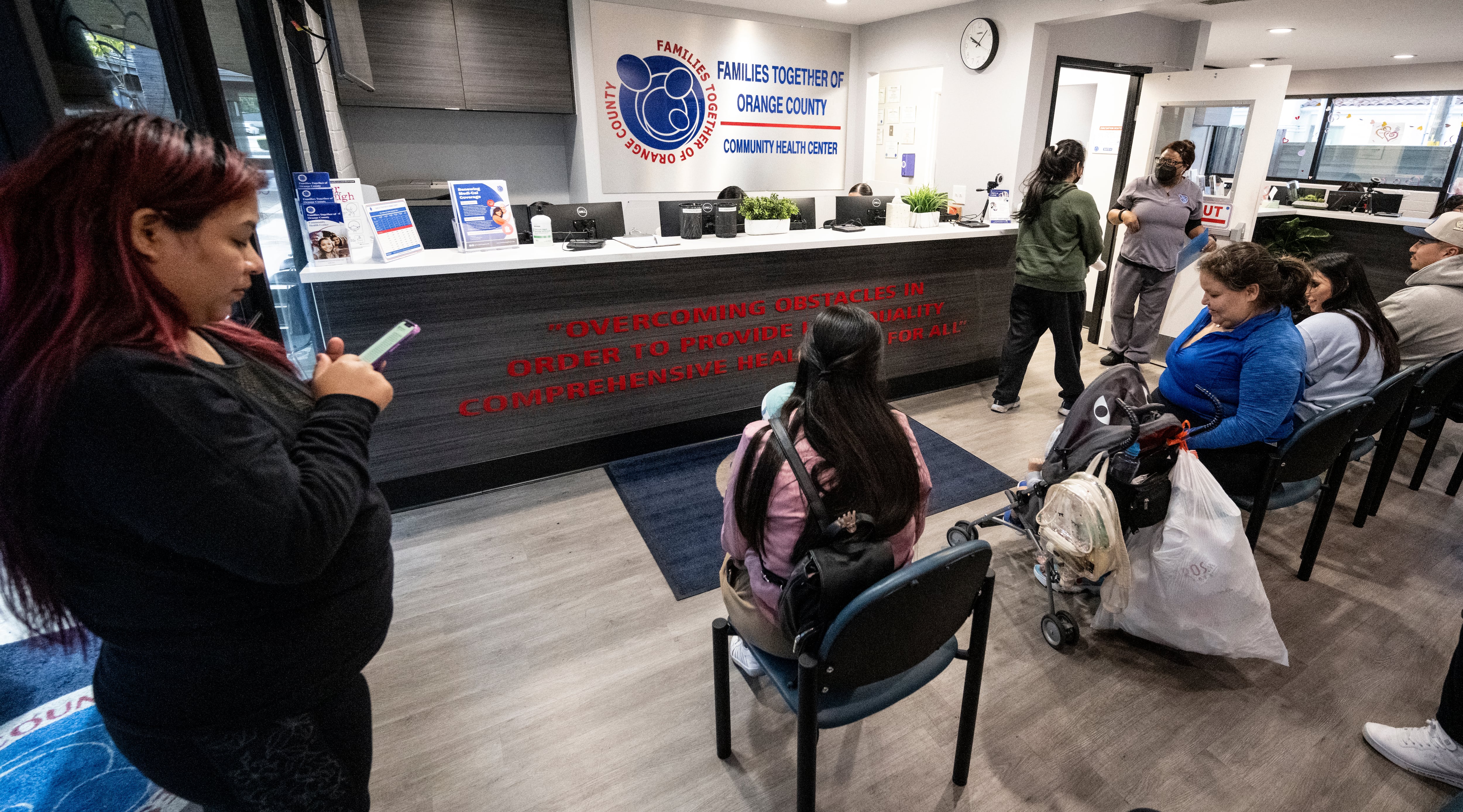
One other blow for the migrant neighborhood in California is within the works. Tens of hundreds of migrants with out authorized standing within the state could possibly be ignored of the general public well being system within the coming years because of a funds settlement accepted by the legislature. This new measure freezes entry to Medi-Cal—the state program equal to Medicaid—for brand spanking new undocumented candidates beginning in 2026, and establishes month-to-month charges for individuals who are already enrolled.
Because of this any undocumented migrant can be rejected from this system beginning subsequent 12 months, whereas these already enrolled must pay a month-to-month premium of $30.
Legislators, with a Democratic majority, voted in favor of the plan final Friday with 57 votes within the Meeting and 26 within the Senate. Though the invoice nonetheless must be negotiated with Governor Gavin Newsom earlier than June 27, it represents a change after all for state coverage, as up to now the purpose was to increase entry to healthcare for undocumented people.
Who can be affected?
The brand new proposal—stricter than the one introduced by the governor in Might—would prolong the Medi-Cal freeze to all non-citizens with “unsatisfactory” immigration standing, which would come with some authorized everlasting residents.
Beginning in 2027, these already enrolled must pay a month-to-month premium of $30 if they’re between the ages of 19 and 59, though they may have the ability to re-enter this system in the event that they briefly lose protection because of modifications of their earnings. The legislative plan additionally delays the elimination of dental companies for immigrants by two years and guidelines out cuts to the house care program.
“Healthcare for all”?
Presently, greater than 1.6 million undocumented migrants obtain public well being companies. In 2024 alone, the state spent $8.5 billion on their medical care, a determine that might exceed $12 billion subsequent 12 months.
However the price of this system has exceeded preliminary projections, and funds pressures have induced priorities to be reevaluated. President Donald Trump’s financial coverage, which incorporates tariffs which have lowered tax revenues, has been blamed partially. Senator Akilah Weber Pierson mentioned the federal government was betting on “a miracle” within the subsequent two years that might stop additional related cuts.
Criticism from all sides
The choice has drawn robust criticism from each the correct and progressive sectors. Republican leaders argue that persevering with to fund healthcare for non-citizens is unsustainable and places different companies in danger. “Medi-Cal is falling aside,” mentioned Republican Minority Chief James Gallagher. “It’s not fiscally possible (to increase it to immigrants). It’s ballooning the funds uncontrolled”.
Well being organizations and Latino leaders mentioned they take into account this transformation a betrayal of immigrant communities. Amanda McAllister-Wallner, director of Well being Entry California, warned that the cuts could possibly be exacerbated if federal reductions in well being funding are accepted.
A number of Democratic lawmakers additionally spoke out. Senator Caroline Menjivar, faraway from the funds well being committee for her opposition to the cuts, abstained from voting and said, “I want to have the ability to stand agency and tall for my constituents and say that is why I dissented”.
Regardless of the criticism, different Democrats defended the settlement, noting that these already enrolled won’t lose protection. “We’re retaining the guarantees that we made,” Weber Pierson mentioned within the Senate. “Nobody at the moment coated will mechanically lose their healthcare protection”.
Then again, the federal Congress might approve new penalties this 12 months for states that provide companies to undocumented immigrants, which is able to scale back the reimbursements California receives and have an effect on the funds.
Join for our weekly e-newsletter to get extra English-language information protection from EL PAÍS USA Version

